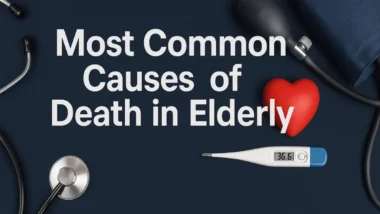Hearing Loss Symptoms Explained by an Audiologist
According to the National Institute on Deafness and Other Communication Disorders (NIDCD), an estimated 37.5 million American adults (15%) report trouble hearing. Worldwide, the World Health Organization (WHO) reports that over 430 million people live with disabling hearing loss, and this number may rise to 700 million by 2050 if left unchecked.
Most people don’t even realize they’re losing their hearing. It’s not like waking up one morning and everything sounds muffled. Instead, hearing loss sneaks up gradually — conversations get harder to follow, TV volumes creep up, and everyday sounds fade.
That’s why audiologists emphasize the importance of spotting early hearing loss symptoms. The earlier you notice them, the sooner you can seek treatment and prevent long-term complications.
What Does Hearing Loss Really Mean?
To understand symptoms, let’s first define hearing loss.
- Mild Hearing Loss: Trouble hearing soft speech or distant voices.
- Moderate Hearing Loss: Difficulty understanding conversations, especially in noisy places.
- Severe Hearing Loss: Only very loud sounds are audible, and communication without hearing aids becomes nearly impossible.
- Profound Hearing Loss: Sounds are barely detectable or completely absent.
An audiologist evaluates hearing using an audiogram, which measures sound perception in decibels (dB). Normal hearing ranges from -10 dB to 20 dB. Anything above 25 dB may indicate some degree of hearing loss.
10 Common Hearing Loss Symptoms (Explained by an Audiologist)
Audiologists classify hearing loss symptoms into behavioral, social, and physical signs. Here’s a breakdown:
1. Frequently Asking People to Repeat Themselves
If you find yourself saying “What?” or “Can you say that again?” more often, it’s not just forgetfulness. Audiologists point out that this is one of the earliest red flags.
You might struggle to follow conversations in group settings, even though one-on-one discussions feel easier.
2. Turning Up the TV or Radio Volume
When family members complain that your TV volume is “too loud,” it’s a clear symptom. According to a Hearing Health Foundation study, about 48% of people with hearing loss first notice it through their television habits.
While you think the TV is at a normal level, others in the room find it uncomfortably high.
3. Trouble Hearing in Noisy Environments
Audiologists call this the “cocktail party effect” — the ability to pick out voices in a noisy room. People with hearing loss often say: “I can hear people talking, but I can’t understand the words.”
Restaurants, family gatherings, or crowded offices become stressful because background noise drowns out conversations.
4. Missing High-Pitched Sounds
Hearing loss often starts with high-frequency sounds. That means:
- Women’s and children’s voices sound unclear.
- Birds chirping, doorbells, or the microwave timer might go unnoticed.
Audiologist Insight: High-frequency hearing loss is common in age-related hearing decline (presbycusis) and noise-induced damage.
5. Feeling Tired After Conversations
Straining to listen all day is exhausting. Audiologists describe this as listening fatigue — the brain works harder to fill in the missing words, leaving you drained.

After a long meeting, you may feel mentally wiped out, even though you didn’t physically do much.
Learn More: DIRECTV Packages For Seniors
6. Responding Inappropriately in Conversations
Mishearing words can lead to awkward or even funny moments. But when it happens regularly, it signals hearing difficulties.
Someone says, “Let’s meet at three,” and you respond, “Tea? Sure!”
7. Ringing or Buzzing in the Ears (Tinnitus)
About 90% of tinnitus cases are linked to hearing loss, according to the American Tinnitus Association. An audiologist considers persistent ringing a companion symptom of damaged auditory pathways.
8. Difficulty Hearing on the Phone
Phones filter sound frequencies, making them harder for those with hearing loss. If you often prefer texting or speakerphone, it might be your ears — not the phone.
9. Withdrawing from Social Settings
When conversations become too frustrating, many people retreat socially. Audiologists warn this can lead to isolation, depression, and cognitive decline if untreated.
10. Physical Sensations in the Ear
- Feeling of fullness or pressure
- Ear pain linked to infections
- Balance issues (since the inner ear controls both hearing and balance)
Older adults with untreated hearing loss are more likely to report frequent dizziness.
Why People Ignore Hearing Loss Symptoms?
Audiologists often hear these common reasons:
- “It’s just part of aging.”
- “People mumble these days.”
- “I hear fine in quiet rooms.”
- “Hearing aids are for old people.”
But here’s the truth: ignoring symptoms only worsens the condition. A Johns Hopkins study found untreated hearing loss increases the risk of dementia by 200–500%, depending on severity.
When to See an Audiologist?
You should schedule a hearing test if you notice:
- Turning up the TV volume beyond what others consider normal.
- Struggling with phone calls.
- Regular ringing in your ears.
- Asking people to repeat themselves more than twice in a conversation.
Many audiologists offer free or low-cost baseline hearing tests for adults over 50.
How Audiologists Diagnose Hearing Loss?
- Hearing History – Reviewing noise exposure, infections, and family history.
- Otoscopy – Checking the ear canal for wax or blockages.
- Audiometry – Listening to tones at different frequencies.
- Speech Recognition Tests – Measuring clarity, not just volume.
- Tympanometry – Checking middle ear function.
These tests help classify hearing loss as conductive, sensorineural, or mixed, guiding treatment options.
Treatment Options for Hearing Loss
- Hearing Aids: Modern devices are nearly invisible and connect to smartphones.
- Cochlear Implants: For severe to profound hearing loss.
- Assistive Listening Devices: Captioned phones, amplified alarms, or TV streamers.
- Medical or Surgical Treatment: For infections, fluid buildup, or bone abnormalities.
Final Thought
Hearing loss symptoms often start small — missing high-pitched sounds, struggling in restaurants, or needing subtitles. But audiologists stress that catching these signs early can dramatically improve quality of life.
Here’s the takeaway:
- Listen to your habits — TV volume, phone struggles, or constant “What?” moments.
- Don’t ignore fatigue or social withdrawal — they often point to hidden hearing loss.
- Book a professional hearing test — especially if you’re over 50 or have a family history.
Healthy hearing doesn’t just help you enjoy conversations; it protects your brain, your relationships, and your independence.
FAQs
Can hearing loss happen suddenly?
Yes. Sudden hearing loss (within 72 hours) is a medical emergency and requires immediate audiologist or ENT evaluation.
Do children show the same symptoms as adults?
Not always. Kids may turn up devices, not respond when called, or show delayed speech development.
Is ringing in the ears always linked to hearing loss?
In most cases, yes — but it can also result from stress, medications, or circulatory issues.
At what age should hearing be checked regularly?
Audiologists recommend baseline tests at age 50 and earlier if you have noise exposure history.
Can hearing loss be prevented?
Yes. Protect your ears from loud noises, avoid inserting objects in your ear canal, and manage conditions like diabetes or hypertension.











